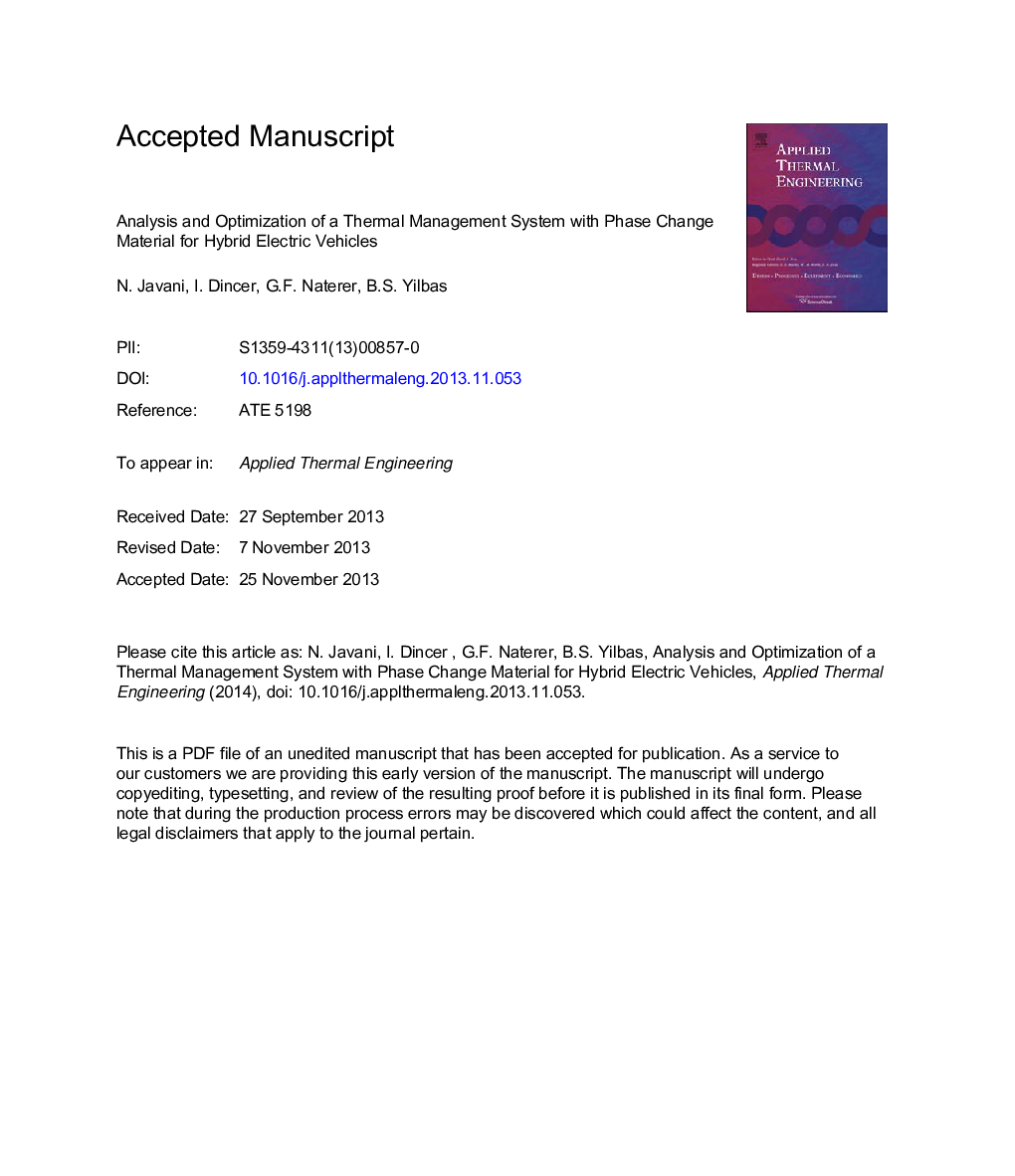| کد مقاله | کد نشریه | سال انتشار | مقاله انگلیسی | نسخه تمام متن |
|---|---|---|---|---|
| 646219 | 1457161 | 2014 | 38 صفحه PDF | دانلود رایگان |
عنوان انگلیسی مقاله ISI
Exergy analysis and optimization of a thermal management system with phase change material for hybrid electric vehicles
ترجمه فارسی عنوان
تجزیه و تحلیل اگزرژی و بهینه سازی یک سیستم مدیریت حرارتی با مواد تغییر فاز برای وسایل نقلیه الکتریکی هیبریدی
دانلود مقاله + سفارش ترجمه
دانلود مقاله ISI انگلیسی
رایگان برای ایرانیان
کلمات کلیدی
راندمان اگزرژی، خودرو الکتریکی هیبریدی، بهینه سازی، مواد تغییر فاز سیستم مدیریت حرارتی،
موضوعات مرتبط
مهندسی و علوم پایه
مهندسی شیمی
جریان سیال و فرایندهای انتقال
چکیده انگلیسی
In the present study, energy and exergy analyses are conducted to investigate a new cooling system of hybrid electric vehicles (HEVs). A latent heat thermal energy storage system is integrated with an active refrigeration cycle where octadecane is selected as the phase change material (PCM). The liquid cooling system flows through the chiller following a conventional vapor compression cooling cycle. The latent heat shell and the tube heat exchanger operate in parallel with the chiller and a fraction of coolant enters the heat exchanger and, therefore, decreases the heat load of the chiller, leading to a lower work required by the compressor. The exergy destruction rate and the exergy efficiency of each component in a hybrid thermal management system (TMS) are calculated. In addition, the effects of parameters such as the fraction of coolant entering the heat storage system (PCM mass fraction), evaporator temperature, and compressor pressure ratio on the system performance are investigated. The findings of the exergy analysis reveal that the overall exergy efficiency of the system with PCM presence is 31%, having the largest exergy destruction rate of 0.4Â kW and the heat exchangers have lower exergy efficiency as compared to other components. In addition, the results of the parametric study show that an increase in PCM mass fraction results in an increase in exergy efficiency of the system. An environmental impact assessment is also conducted and the results show that an increase in exergy efficiency of the cooling system reduces greenhouse gasses and also increases the sustainability of the system. Moreover, a multi-objective optimization using the genetic algorithm is performed by incorporating two objective functions, namely exergy efficiency to be maximized and total cost rate of the system to be minimized. A Pareto frontier is obtained and a single desirable optimal solution is selected based on LINMAP decision-making process. The results show that the maximum exergy efficiency of the system is 34.5% while the minimum total cost rate is 1.38Â $/h.
ناشر
Database: Elsevier - ScienceDirect (ساینس دایرکت)
Journal: Applied Thermal Engineering - Volume 64, Issues 1â2, March 2014, Pages 471-482
Journal: Applied Thermal Engineering - Volume 64, Issues 1â2, March 2014, Pages 471-482
نویسندگان
N. Javani, I. Dincer, G.F. Naterer, B.S. Yilbas,
